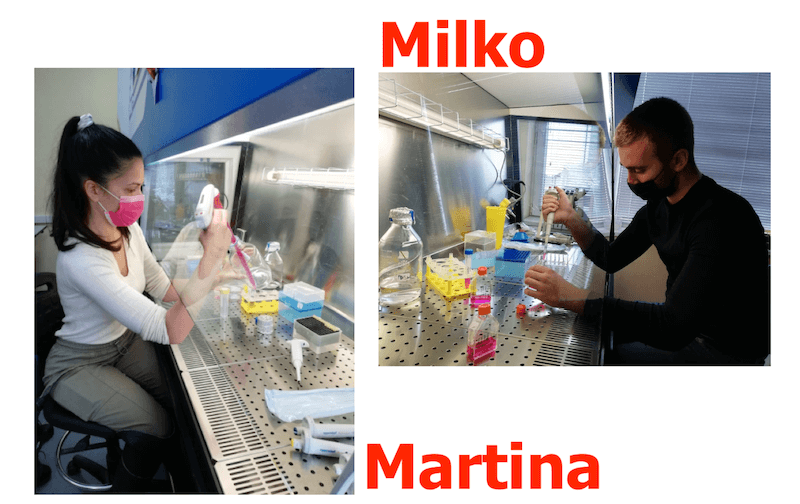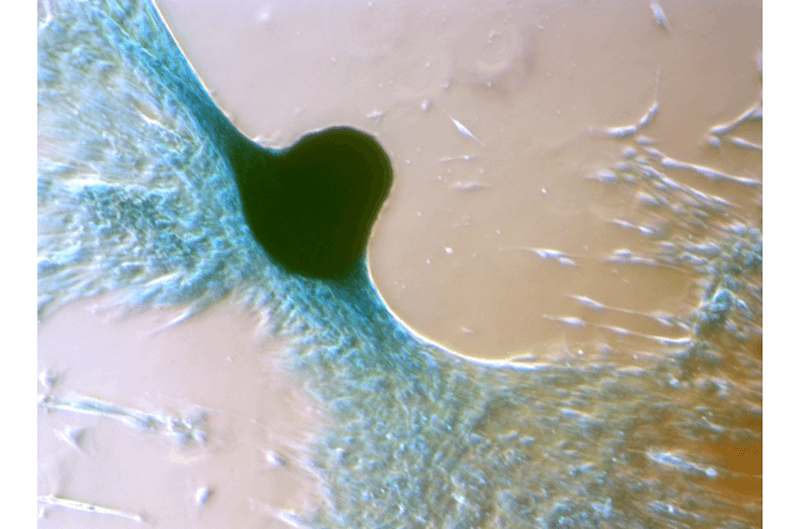 His interests span entrepreneurship, investment, and biochemistry. At 23, Milko Penev trades on the New York Stock Exchange and is a member of the Association of Bulgarian Leaders and Entrepreneurs and of the Digital Health and Innovations Cluster Bulgaria — all while pursuing a degree in medicine at Medical University Sofia.
His interests span entrepreneurship, investment, and biochemistry. At 23, Milko Penev trades on the New York Stock Exchange and is a member of the Association of Bulgarian Leaders and Entrepreneurs and of the Digital Health and Innovations Cluster Bulgaria — all while pursuing a degree in medicine at Medical University Sofia.
Twenty-two-year-old Martina Lazarova worked in orthopedics for two summers and has experience in health management and marketing. A fourth-year medical student at Medical University Sofia, like Milko, she is focused on becoming a first-rate doctor, even as she is learning more about how healthcare establishments work and what makes a business successful.
Martina and Milko are the team behind one of the winning projects in the America for Bulgaria Foundation’s Science with a Future request for proposals in 2020. Part of the Foundation’s Next 10 Program: Supporting Ideas that Matter in the Next Ten Years, science-themed RFPs promote innovation and entrepreneurship in the life sciences by backing early-stage ventures like Martinа and Milko’s. Their effort to create knee implants from human collagen was one of 17 promising projects that received funding for further development in the program’s inaugural year.
Anyone who has suffered knee deterioration or trauma knows the prognosis: painful shots, which provide only short-term relief, or titanium implants, where the chance of immune reaction and rejection is significant. A titanium implant will also likely need to be replaced a decade or so down the line, making it a less than ideal option for younger patients.
“Currently, most problems in orthopedics are solved through the application of mechanical, non-organic implants. Cell research in this area is almost nonexistent, which creates opportunities for innovation,” Martina says, by way of describing the problem she and Milko are trying to solve.
If successful, their solution could be great news for orthopedic patients, improving their outcomes and diminishing the financial burden on the healthcare system. The solution involves using lab-grown human collagen to create a knee implant that most closely resembles the original, damaged tissue in texture and performance. An organic implant is less likely to be rejected by a patient’s body and to lead to complications such as infection and allergic reactions. Recovery time will be shortened, and pain and discomfort considerably lessened.

“Our goal is to develop an implant that will restore the full range of motion, without pain, ensuring full joint functionality, thanks to the organic nature of the implant,” Milko says.
By the pair’s estimates, getting there will take a few more years of work. Their current challenge is finding an effective way of growing collagen in a laboratory. Thanks to the mentorship of faculty from Medical University Sofia and advisors from pharmaceutical company Novartis, as well as some promising early results with the use of dental stem cells, the two are confident that they are on the right track. The ABF grant will help them purchase the supplies necessary for continuing their research.
Martina and Milko are certain that successfully creating an organic knee implant will facilitate the development of other bioprostheses such as valves and grafts, with huge ramifications for heart surgery, esthetic medicine, plastic and reconstructive surgery, orthopedics, and the pharmaceutical industry. In the meantime, their work is paving the way for more crossovers between science and entrepreneurship and is inspiring others in the medical field to explore pioneering research-based interventions.
“Science has to solve problems and create innovative solutions that can be commercialized. We want to show that doctors can and should be at the forefront of creating ground-breaking treatments,” Martina says.
“One person’s success is enough for others to say to themselves, ‘I can do it, too,’” Milko adds. “This is a pilot process… Even if we fail, we will learn so much from it.”
The project takes up every waking moment that the two are not studying for exams, doing internships, or working the jobs that support them financially. Despite the challenges, they are driven forward by the spark of innovation and the belief that “the success of a doctor is measured by the number of lives they have changed or saved,” Martina says.
By working on a potentially scalable treatment, the two are going for maximum impact and hoping to make a difference in the lives of patients the world over.

